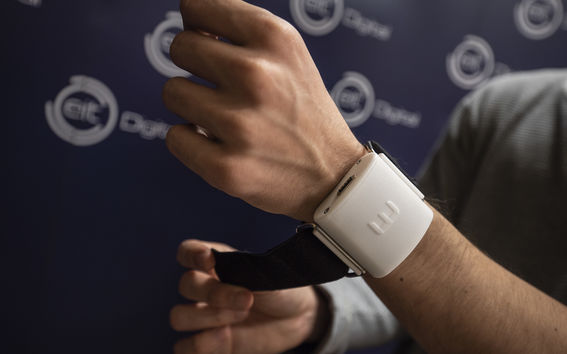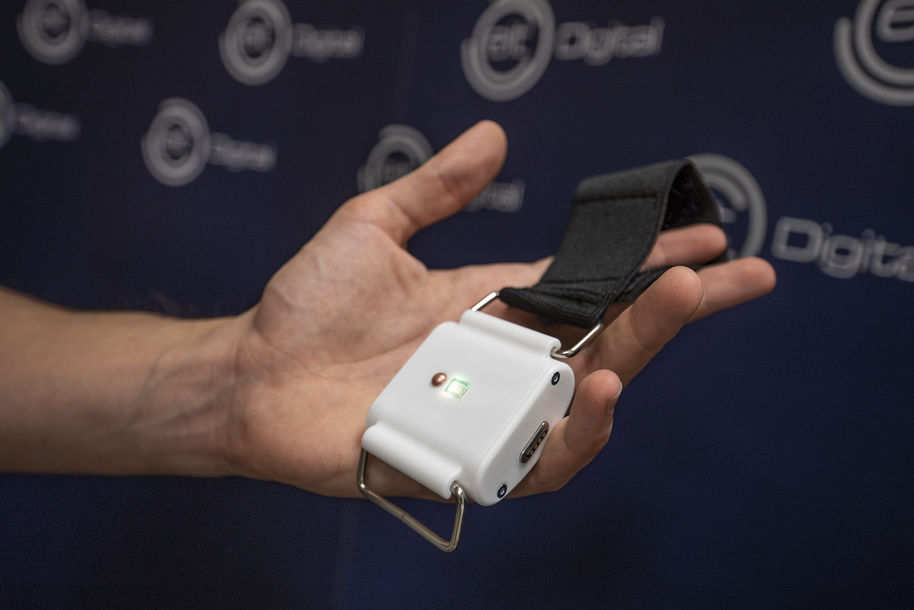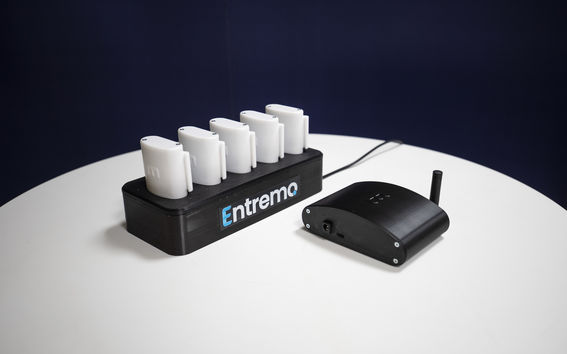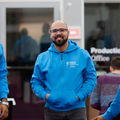A remote device helps medical staff in the fight against time

‘We noticed that the patient monitoring processes in hospitals are inefficient. They also lack digital solutions and generate unnecessary manual and administrative tasks for the overworked nurses and doctors.’ says Miklós Knébel.
Knebel and Péter Dános participated in a project run by EIT Digital Master School in which students designed a new type of medical device for monitoring patient vital signs. The device consists of a 3D-printed wristband that can remotely monitor patients’ vital signs, such as body temperature, oxygen saturation, pulse, and respiratory rate.
This device utilises IoT technology to quickly and securely send the patients’ data to a medical software platform. This allows multiple patients to be followed simultaneously, increasing time efficiency for medical staff.
The device reports problems in real-time
One benefit of the remote monitoring device over traditional manual monitoring of patient vitals is that medical staff can immediately notice changes in a patient’s condition and act accordingly.
‘As an example, the increase in a patient’s temperature is usually the first indicator of an infection, but respiratory- and other acute issues can also be immediately noticed with Entremo’s system. Time is often of the essence in health care – so the quicker a change in a patient’s condition is noticed, the fewer complications that will occur,’ says Knébel.
It is especially beneficial for monitoring patients with Covid-19 as it does not require close contact between medical staff and the patient. The device is also helpful in the care of patients with other respiratory diseases.
Funding boosts innovation
A team of six international students developed the device. This founding team won the EUvsVirus award in April 2020, the goal of which was to develop innovative digital solutions for coronavirus-related challenges.
In September 2020, they received a EUR 500 000 investment from EIT Digital and its partners to develop their medical device. EIT Digital is part of EIT, which stands for the European Institute of Innovation and Technology. Thanks to this innovation funding, the startup company Entremo was established.
The Entremo team is using the EIT Digital investment to develop their minimal viable product. According to Knébel, there is still a critical phase left: testing and validation with patients on a broader scale.
This spring, the device is being tested in nursing homes and hospitals in Hungary.
‘We have high hopes, but we still need external feedback on what should be changed or improved. We developed this solution based on consultations with health care workers and other professionals to be a useful tool in a hospital setting. However, we will only know if we have succeeded when it is validated in practice.’ says Dános.


The EIT Digital Master School offers double degrees, which combine technical competence with Innovation and Entrepreneurship skills at a European network of 17 top technical universities around Europe.
Miklós Knébel studied Autonomous Systems at Aalto University and partner university Technische Universität Berlin. Péter Dános Danos studied Visual Computing and Communication at KTH Royal Institute of Technology and is currently completing his second year at Aalto University remotely.
This article will be published in the Aalto University Magazine issue 28, May 2021.
Text: Saana Kallioinen
Photos: Entremo
Read more about the international joint programmes
European collaboration in joint degree programmes
Aalto’s international joint master’s degrees foster a spirit of innovation, collaboration, and appreciation for diversity among their students.
Alumnus of SECCLO programme: ‘Creating a bond with Finland’
A summer internship led to a career in cybersecurity at Ericsson for Bruno Duarte from Paraguay, who graduated from the SECCLO Master’s programme in Security and Cloud Computing in 2020.

Read more news

Alum Ding Ma: 'I want to represent a new-era Mayor'
Ding Ma, who will start as the Mayor of Savonlinna at the age of 37, studied Information and Service Management at the School of Business.
A sustainable city is also age-friendly
Cities must involve older adults more strongly in the planning of the urban environment.Eden Telila's master's thesis contributed to Ramboll's geotechnical toolkit
Geoengineering alum Eden Telila helped Ramboll automate manual tasks.






